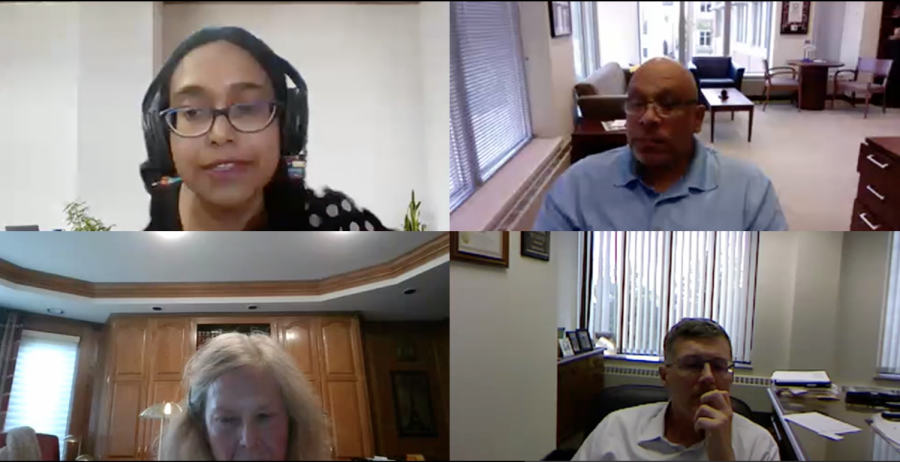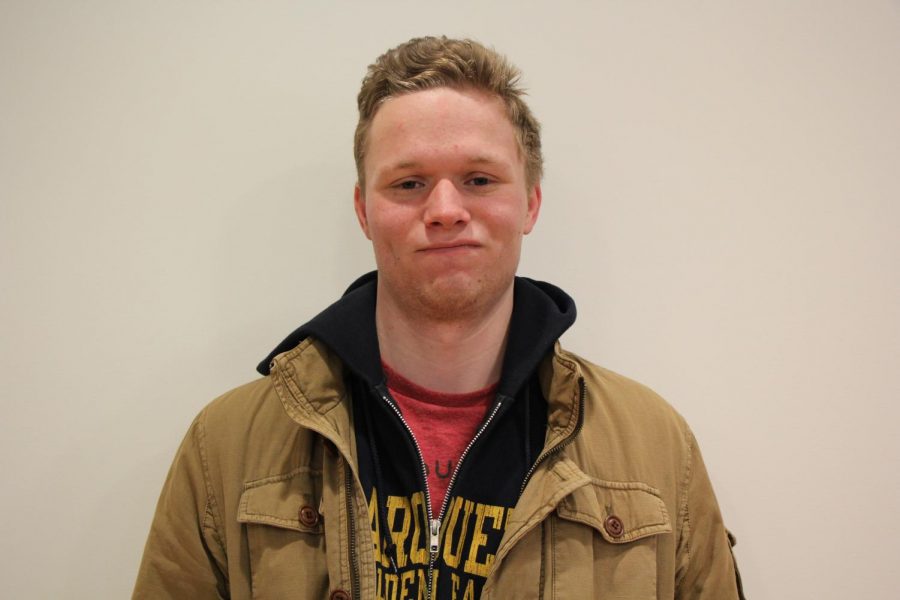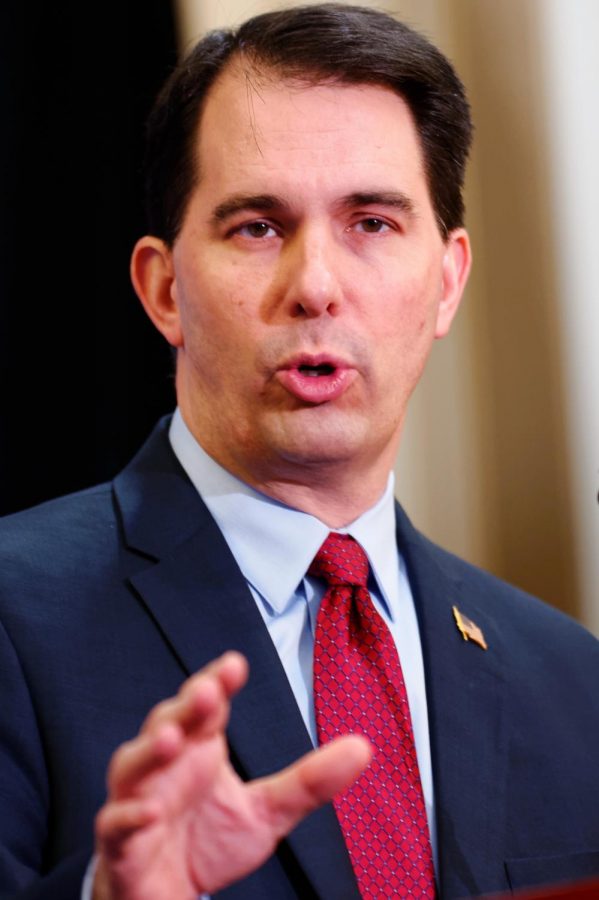Wisconsin Gov. Scott Walker proposed initiatives to change how public higher education would receive government funding at a gathering at the Ronald Reagan Presidential Library and Museum in Simi Valley, Calif.
The proposed changes would dispense money to Wisconsin Technical College schools and schools in the University of Wisconsin system based on student performance and graduation rates.
“What we’re going to do (about our education system) is not put money in,” Walker said at the forum. “Because as I mentioned before, spending more money is not the answer – spending it more wisely is. We’re going to make more investments that are driven off of performance.”
Walker said this new outcome-driven funding would also affect the states’ elementary and high schools.
“If you want money,” Walker said, “we need you to perform.”
Andy Brodzeller, a senior communication specialist at Marquette, said Walker’s plan would not affect Marquette because of its status as a private institution.
“At this point in the process Gov. Walker has only spoken generally about the concept,” Brodzeller said in an email. “Any changes would have to either be part of the governor’s proposed budget or introduced as separate legislation. Based on what the governor has said to date, any change would only apply to public higher education institutions.”
Rolf Wegenke, president of the Wisconsin Association of Independent Colleges and Universities, said the governor is currently consulting with the University of Wisconsin system, the Wisconsin Technical College System and WAICU in formulating a proposal for higher education. He said the governor’s announcement of performance funding is currently just a “general concept.”
“Specific details are being developed with the expectation that a proposal will be included in the biennial budget proposal, which the governor will unveil in February 2013,” Wegenke said in an email.
Walker’s plans to tie financial funding to academic performance stemmed from his aspirations to close the “skills gap” in the health care, manufacturing and information industries.
“They have jobs,” Walker said. “They just don’t have enough skilled workers to fill those jobs.”
According to The Next Generation Wisconsin study, manufacturing companies “had gaping holes” in five areas of their talent pool. The study said 37 percent of manufacturers lacked the talent and innovative leadership needed and that 66 percent lacked the talent needed to drive global engagement into the next decade.
In a 2012 report prepared for the governor, Tim Sullivan, a special consultant for business and work force development for the state of Wisconsin, recommended performance-based funding in publicly funded schools and encouraged students to seek admission at WTCS so they might fill vacant jobs in the skills gap.
“We’ve seen that many of Wisconsin’s future jobs are going to be middle-skill jobs, which are jobs that need some postsecondary education, but less than a four-year degree,” the report concluded. “To that end, Wisconsin should encourage students to attend our technical and two-year colleges.”
The governor voiced such recommendations at the Reagan Forum, emphasizing the need for students to explore the technical degrees that are high in demand in the state.
“Are young people getting degrees in jobs that are actually open and needed today, not just the jobs that the universities want to give us, or degrees that people want to give us?” Walker said.
Androo Hinkfuss, a sophomore at the University of Wisconsin-Madison, was not pleased with this statement. He said students should not be pushed to pursue academic careers that do not inspire or suit them individually.
“It is the dream of having a job I enjoy after college that keeps me motivated,” Hinkfuss said. “Not a job that Walker wants me to have, but a job that engages my interests and plays to my talents. I know what I’m best at, and I know what I am interested in.”





